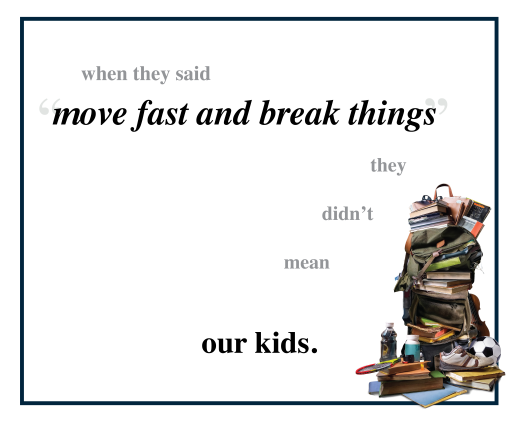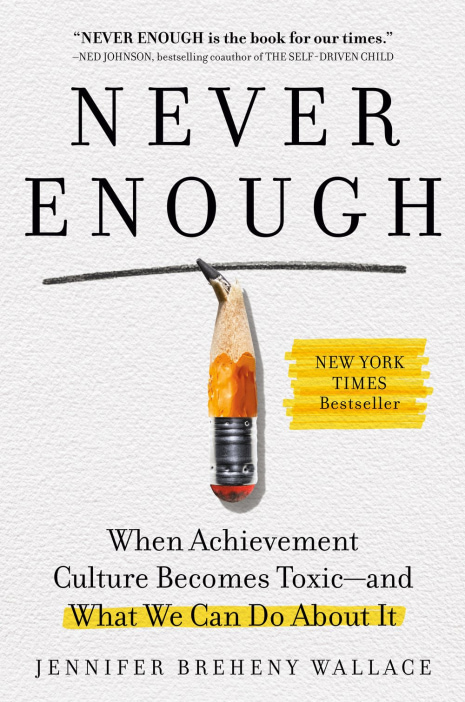
Achievement Without the Burnout
OUR KIDS DESERVE BETTER
At The Kehillah School, we believe education should foster a student’s whole self—prioritizing both academic growth and personal well-being. By providing this balance, Kehillah helps students build resilience, find joy in learning, and prepare for a future where they thrive in every aspect of life--not just on their transcripts.
Interested in learning more?
Below are some resources that explain why high school education should take a more balanced approach to learning and
achievement.
Ready to see this philosophy in action?
BOOK RECOMMENDATION
Never Enough: When Achievement Culture Becomes Toxic—and What We Can Do About It by Jennifer Breheny Wallace
Wallace explores the pressures faced by students and families in today's high-achieving, competitive environments. The book delves into how the relentless pursuit of success—characterized by the need for perfect grades, high test scores, and numerous accomplishments—can lead to mental health challenges such as anxiety, depression, and burnout. Wallace offers insights and practical strategies for parents, educators, and communities to foster a more balanced approach, emphasizing intrinsic motivation, resilience, and finding joy and purpose in learning, rather than focusing solely on external achievements.
No time for the full book?
Here are articles that summarize Wallace's Key Ideas:
-
"Why Achievement Culture Has Become So Toxic" (Greater
Good Magazine, Science-Based Insights for a Meaningful Life, Berkeley Edu)
This article discusses how societal and economic pressures lead children to tie their self-worth to achievements, highlighting how parents feel the need to guide their children intensively due to fears of them not succeeding in a competitive world. It introduces the concept of "mattering"—the idea that children need to feel valued for who they are, not just for their achievements. -
“How Achievement Pressure is Crushing Kids
and What to Do About It" (Harvard Gazette)
This article explores the "never enough" mindset prevalent today, particularly how parents often feel responsible for their children's achievements amidst economic uncertainties. It emphasizes the importance of balancing achievement with a healthy sense of self and relationships.
WHAT OUR EDUCATORS ARE READING
-
“Challenging Achievement Culture in Schools” (National Association of Independent Schools)
This resource provides insights into how high-achieving schools face a culture of social comparison and pressure, which can lead to anxiety and depression. It offers examples of how schools are redefining rigor, adjusting schedules to reduce stress, and promoting resilience and emotional well-being. It encourages students to embrace imperfection and develop a healthier relationship with learning.
-
“How to Promote Intrinsic Motivation in Students” (Edutopia)
This article emphasizes balancing extrinsic and intrinsic motivation to create a learning environment that fosters self-motivation. Drawing from Larry Ferlazzo's book, "The Student Motivation Handbook," it encourages creating a "community of learners" rather than just a classroom of students and provides strategies for teachers and parents to help students find meaning and purpose in their learning journey.
-
“Why Perfect Grades Don’t Matter” (TED-Ed)
This informative video highlights how striving for a perfect GPA can actually discourage creativity and risk-taking. It emphasizes that grades aren’t the only measure of a student's capabilities, encouraging a more holistic approach to education that values curiosity and personal growth.


